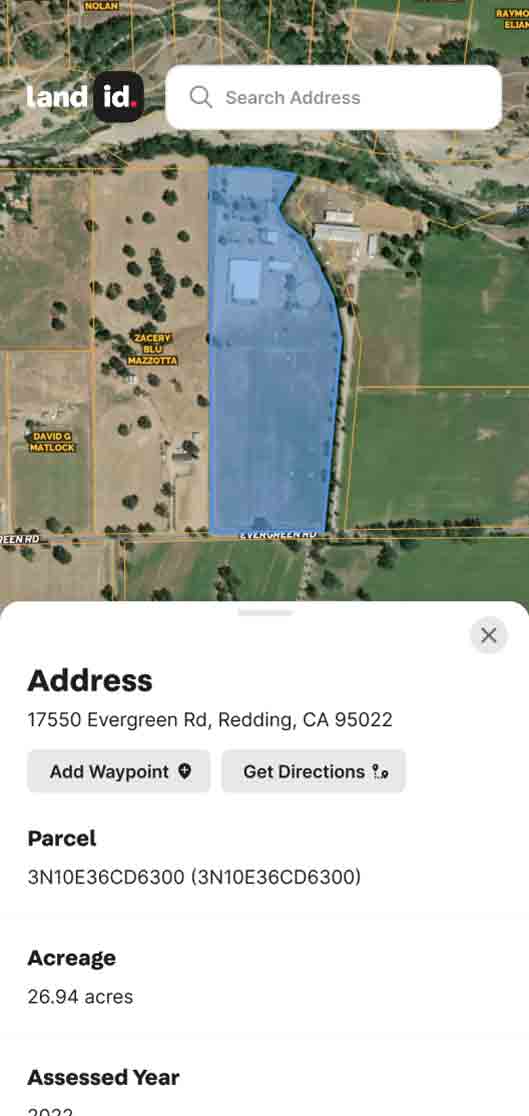So, you've found your dream property – fantastic! But before you get swept away by visions of housewarming parties and barbeques on the patio, there's a key step you can't skip: due diligence. Think of due diligence as taking a magnifying glass to your potential purchase to uncover any hidden issues or potential problems with the property before you commit to buying it.
This blog post will equip you with the knowledge you need to begin navigating due diligence for real estate transactions confidently. We'll break down the process step-by-step and outline the essential checks you should make to ensure a secure and lawful real estate investment.
Main Takeaways From This Article:
- Due diligence in real estate ensures a secure and lawful property transaction involving a thorough review of legal titles, property conditions, and zoning laws.
- Pre-offer due diligence involves initial research to avoid properties with potential red flags, while post-offer due diligence includes detailed inspections and verifications after the agreement.
- Key components of due diligence include title review, property inspections, zoning verification, financial analysis, and environmental assessments.
- Tools like Land id® provide comprehensive parcel and property data, owner history, and property boundaries, enhancing due diligence and safeguarding investments.
- Engaging professionals, conducting in-depth research, and understanding local market trends and regulations are recommended best practices for managing risks and ensuring a successful real estate investment.
What Is the Due Diligence Period in Real Estate?
The due diligence period is a window of time written into the purchase agreement after an offer is accepted. It typically falls between the offer acceptance and the closing date.
This period allows the buyer to conduct a detailed investigation of the property and gather information to ensure the buyer is making the right investment. The length of this window can vary depending on the complexity of the transaction and negotiations, but it can be anywhere between 30 and 90 days.
The Due Diligence Process Explained
A thorough due diligence process can prevent costly surprises down the line, saving you from headaches and potential legal issues.
Due diligence can be broken down into two main phases: pre-offer and post-offer.
Pre-Offer Due Diligence
This initial stage involves gathering general information about the property to help you decide whether to make an offer. Here, you might:
- Research the Neighborhood: Use online resources and local community forums to learn about the neighborhood's vibe. Research crime rates, school rankings, and proximity to amenities like parks, shops, and public transportation. Also, consider exploring future development plans in the area, as these can significantly impact property values.
- Review Online Listings and Property Records: Scour online real estate platforms and public property records to understand the property's history. Look for details like past renovations, permits issued, and prior ownership. Pay attention to asking price trends to understand how the property stacks up against similar offerings in the area. Be sure to watch for any potential red flags, such as frequent ownership changes or unusually low prices.
- Drive by the Property: Schedule a time to take a quick spin by the property to get valuable first impressions that can't be gleaned from online listings or photos. This allows you to observe the neighborhood firsthand, get a feel for the surrounding area, and make note of any external issues like traffic noise, overflowing dumpsters, or potential structural concerns.
Once your offer is accepted, the real investigative work begins. This is your chance to examine the property and uncover any potential problems before finalizing the purchase. Let's take a deep dive into the post-offer due diligence process.
Essential Components of the Post-Offer Due Diligence Process

Now, let's dive into the nitty-gritty of the post-offer stage and explore the twelve crucial components that ensure a smooth and informed transaction between a buyer and a real estate agent:
Title Review
A title search is absolutely essential. This process, typically conducted by a qualified title company, verifies that the seller has legal ownership of the property and there are no outstanding liens, claims, or encumbrances on the title.
Property Inspections
Property inspections help identify potential defects and ensure the property's condition meets expectations.
Schedule a thorough inspection by a licensed professional. This should include a general inspection focusing on the building's structural integrity, major systems (electrical, plumbing, HVAC), and potential safety hazards like mold or asbestos. Depending on the property's age and location, additional inspections for pests, radon, or termites might be recommended.
Zoning and Land Use Verification

Understanding the property's zoning regulations is crucial. Zoning dictates what you can and can't do with the land, impacting potential renovations, use as a rental property, or future development plans. Contact the local zoning department or consult a real estate attorney to ensure your intended use of the property aligns with the regulations.
Financial Analysis
Don't get carried away by the emotional pull of a dream home—crunch the numbers! This involves creating a detailed financial analysis of the property that considers the purchase price, renovation costs, and recurring expenses. By creating a comprehensive financial analysis, you can ensure the investment aligns with your budget and long-term financial goals.
Survey Review

A property survey is a crucial document that confirms the property lines and ensures any structures on the property are indeed within those boundaries. Discrepancies in the survey can lead to future headaches with neighbors or potential development limitations.
Review of Local Regulations
Every locality has its own set of ordinances and restrictions that might affect your plans for the property. These could include historic preservation guidelines, noise limitations, or specific permitting requirements for renovations. Researching local regulations can help you avoid unexpected roadblocks down the line.
Legal Compliance
The purchase agreement is the foundation of your real estate transaction. It outlines the terms of the sale, including the purchase price, closing date, contingencies, and the rights and responsibilities of both buyer and seller. Having a qualified real estate attorney on your side is essential to ensure this agreement is fair and comprehensive and protects your interests.
Review of Contracts and Leases
If the property has existing tenants, carefully review the terms of any leases in place. Understand the duration of the lease agreements, rent amounts, and any potential liabilities you might be inheriting as the new owner. By carefully reviewing existing leases, you gain a clearer picture of the property's income potential and any ongoing obligations you might be assuming.
Environmental Assessments
An environmental assessment might be necessary for certain properties, particularly those in industrial areas or with potential environmental concerns. This helps identify and address any hazards like lead paint, asbestos, or underground storage tanks.
Market Analysis
Market analysis in real estate means examining the local market and the factors driving demand and supply. This helps you understand how valuable a property might be over time and whether it has the potential to grow.
Key parts of this process include checking recent sales of similar properties, estimating population growth, and watching property value trends. These details are crucial for making smart investment choices and knowing how a property stands against others.
Assessment of Future Expenses
Consider potential long-term costs. Think about major repairs or replacements that might be on the horizon, like roof replacements or significant upgrades to the electrical system. Factoring in these possibilities allows for more informed budgeting and decision-making.
Insurance Coverage Review
Review the property's existing insurance coverage and consider if additional insurance is necessary based on your plans and risk assessment. This could include flood insurance, additional liability coverage, or coverage for specific risks identified during inspections.
Complete Real Estate Due Diligence Checklist

Now that you've familiarized yourself with the essential components of due diligence and have the knowledge to thoroughly examine the property, the next step is to make a confident investment decision.
To keep yourself organized during this crucial phase, here's a handy checklist to tick off as you progress:
- Research the property's local submarket. Ensure it's in a favorable location by doing online research and consulting with local real estate agents.
- Conduct an online search of the property address and current seller to uncover any history of crime, fraud, or other red flags.
- Review the property condition report. Pay close attention to the seller's disclosures for any significant issues with the property.
- Study any provided environmental and energy reports.
- Examine all government-issued documents related to the building, such as permits, certificates of occupancy, code violations, and notices.
- Review any recent capital expenditures and note any deferred maintenance.
- Obtain a rent roll to see the current rental rates and remaining terms on existing leases. Assess if lease rates align with the market or if there's potential to increase them to market rates.
- Evaluate property tax and utility bills from the past few years.
- Review the property's profit and loss statement.
- Evaluate the existing debt on the property and compare the rate and terms to the current market offerings.
- Complete a site visit of the property. Walk through common spaces and try to enter some of the units. Consider bringing trusted advisors, such as a local commercial real estate agent and a general contractor, on the property tour. Look for deferred maintenance or structural issues.
- Speak with current tenants, employees, and the property manager, if possible.
- Develop a list of planned maintenance and other capital improvements for the property post-closing.
- Contact lenders and start a preliminary underwriting process to determine what terms they are willing to offer on the property.
- Check all the costs to ensure the property meets your investment goals. This includes maintenance, major repairs, and unexpected expenses.
Ensure a Secure Real Estate Investment With Land id®
While this checklist provides a solid foundation, there's a powerful tool that can significantly enhance your due diligence process: Land id®.
Land id® is a comprehensive property data platform that empowers informed real estate decisions. Here's how Land id® can be your due diligence partner:
- Detailed Parcel Information: Access detailed information about the specific property you're interested in, including ownership history, property boundaries, and acreage.
- Interactive Maps: Explore the property and surrounding area with clear and informative maps.
- Property Record Search: Gain insights from public and private data sources, including soil reports, floodplain location, nearby developments and transmission lines, and over 40 other key data points and overlays.
- Valuation Tools: Utilize Land id®'s property ownership database to compare nearby property values, recent sales history and more!
By leveraging Land id®'s wealth of property data alongside your due diligence checklist, you'll be well-equipped to make a secure and informed real estate investment. Remember, knowledge is power, and thorough due diligence is the key to unlocking successful property ownership.
Ready to unlock the power of Land id® for your real estate decisions?
FAQs
Continue Reading





